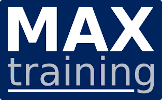IBM i Administration & Operation
Code: IAODescription
This course goes from introduction to advanced on IBM i Administration and Operation and combines the following 2 courses into a one week course:
System Operator for IBM i
Advanced System Operator Workshop for IBM i
Audience
This course is intended for the person who has responsibility for daily system operations and administration of an IBM i system.
Prerequisites
There are no prerequisites for this course.
Objectives
- Use the online help and references
- Send, display, and reply to messages
- Monitor and control jobs, devices, and job and output queues
- Start and stop the system
- Create and change user profiles
- Use authorization lists and group profiles
- Manage system configuration --> this could be the replacement for Manage system devices, user display stations, and printers
- Save and restore objects, libraries, and the system
- Monitor job and history logs
- Diagnose a system problem
- Order, receive, and apply PTFs
- Perform all of these functions using a 5250 emulation session as well as IBM i Access Client Solutions and IBM Navigator for i
- Explain the concept of how LPAR works
- Explain the functions served by the HMC
- Explain how user versus resource security are implemented
- Explain the difference between group profiles and authorization lists
- Describe how adopted authority works
- Describe how work is managed on the system and the concepts of the performance tuning process on the system
- Explain how Management Central can be used to manage a single system or a network of System i servers
- Perform the steps to create a basic CL program using both the traditional (PDM and SEU) and the newer GUI (RSE and LPEX) application development tools
- Perform the steps to create a menu using SDA
- Provide some tips on how you can improve your operations
Topics
- Power Systems and IBM i concepts and overview
- Reference material and support
- Overview of IBM i Access Client Solutions
- Overview of 5250 emulation and help
- Overview of IBM Navigator for i
- Messaging concepts
- Messaging with 5250 emulation
- Messaging with IBM Navigator for i
- CL command concepts
- CL commands with 5250 emulation
- Concepts: Object, library, and the IFS
- Object management with 5250 emulation
- Object management with IBM Navigator for i
- Introduction to work management
- Work management with 5250 emulation
- Job control with 5250 emulation
- Job control with IBM Navigator for i
- Print concepts
- Print control with 5250 emulation
- IBM i Access Client Solutions printer output
- Print control with IBM Navigator for i
- Starting and stopping the system
- System security concepts
- System security with 5250 emulation
- System security with IBM Navigator for i
- System configuration overview
- Configuration with 5250 emulation
- Configuration with IBM Navigator for i
- Control language programming
- IBM DB2 for i introduction
- Save concepts
- Save with 5250 emulation
- Save with IBM Navigator for i
- Restore concepts and overview
- Problem determination with 5250 emulation
- Overview of the PTF process
- PTFs with 5250 emulation
- Storage management
- Introduction to system tuning
- LPAR concepts and overview
- Console options and HMC overview
- IASP concepts and overview
- Security concepts and overview
- System values
- User security (user and group profiles)
- Resource security
- Authorization lists and adopted authority
- Management Central overview
- Commands and tasks using Management Central
- Inventory using Management Central
- System values using Management Central
- Other Management Central functions
- Work management: Concepts and overview
- Work management: Subsystem concepts and overview
- Work management: Job processing concepts and interactive jobs
- Work management: Job processing concepts of other job types
- Work management: Submitting and tracking of batch jobs
- Programming concepts
- CL programming concepts
- Using PDM and SEU to create a CL program
- Starting and setting up RSE
- Creating a CL program using RSE and LPEX Editor
- Creating a menu using SDA
- Tips for improved operation
Price (ex. VAT)
€ 3.800,00 per person
Duration
5 days (shortened from 7 days)
Schedule
- virtual
- 26-01-2026 - 01-01-1970
- register
Delivery methods
- Classroom
- On-site (at your location)
- Virtual (instructor online)
